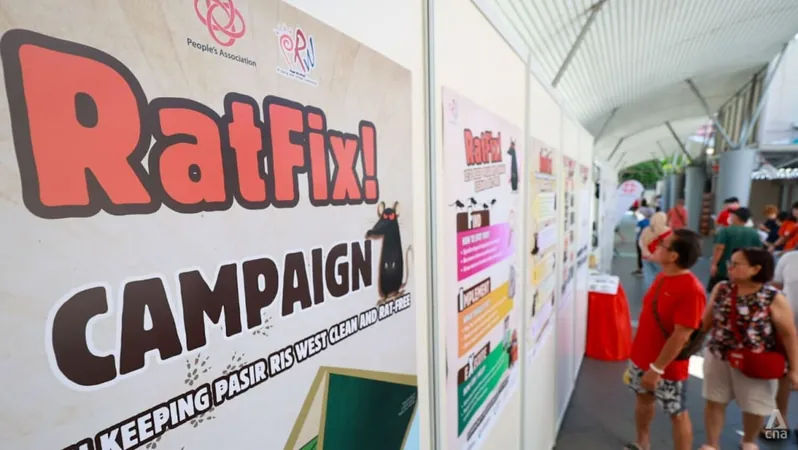
Singapore Hits Pause on Climate Disclosure for Small and Mid-Sized Firms: What You Need to Know!
2025-08-26
Author: Yu
Major Setback for Climate Reporting Regulations
In a surprising move, Singapore’s Accounting and Corporate Regulatory Authority (Acra) and Singapore Exchange Regulation (SGX RegCo) have announced a five-year delay for climate-related disclosure requirements, specifically targeting small and mid-sized listed companies. This pivotal decision has sent ripples through the business community, which is grappling with compliance challenges.
New Deadlines: Who Gets Extra Time?
Initially set to align with the International Sustainability Standards Board (ISSB) standards starting January 2025, smaller listed firms—those not on the Straits Times Index (STI) and with market capitalizations under $1 billion—now face a deadline of FY2030. For non-STI firms with slightly larger market caps over $1 billion, the compliance date remains FY2028, and all listed companies must commence reporting their Scope 1 and Scope 2 emissions beginning this financial year.
Regulatory Backpedaling: A Response to Industry Concerns
This extension was prompted by a recent recommendation from the Singapore Business Federation, which argued that many businesses felt ill-prepared to meet the original deadlines. The regulators acknowledged this feedback, emphasizing the need to support companies in their reporting endeavors amidst an unpredictable global economic landscape.
Scope 3 Emissions: Who's Responsible?
While STI constituents will maintain their existing responsibilities—including reporting Scope 3 emissions from FY2026—the other listed companies can breathe easier, as these reports remain voluntary for now. Interestingly, SGX RegCo is revisiting these Scope 3 requirements, particularly for larger firms, suggesting that these indirect emissions will eventually become a part of the narrative.
A Shift in the Reporting Framework
This overhaul in the regulatory landscape introduces a structured three-tier system for reporting obligations based on market capitalization. By granting extended timelines, regulators hope to enable companies to gradually develop their reporting capabilities while balancing compliance costs with necessary climate initiatives, crucial for their positioning in global supply chains.
Singapore vs. Malaysia: A Comparative Analysis
While Singapore adjusts its climate reporting timelines, neighboring Malaysia moves forward with more stringent requirements—large companies must start reporting ISSB-aligned disclosures as early as 2025. Smaller firms in Malaysia won’t escape either; they’ll start reporting by 2027. This difference may place Singapore at a competitive disadvantage.
What’s Next for Non-Listed Companies?
And it’s not just listed companies feeling the heat; large non-listed firms are also hit with a three-year delay for ISSB-aligned climate reporting, shifting the compliance date from FY2027 to FY2030.
Conclusion: A Delicate Balancing Act
As Singapore grapples with its climate reporting strategy, the stakes have never been higher. Companies must align their progress with the city's ambitious net-zero target by 2050. Navigating these new timelines will be crucial in maintaining their standings in the ever-evolving global market.



 Brasil (PT)
Brasil (PT)
 Canada (EN)
Canada (EN)
 Chile (ES)
Chile (ES)
 Česko (CS)
Česko (CS)
 대한민국 (KO)
대한민국 (KO)
 España (ES)
España (ES)
 France (FR)
France (FR)
 Hong Kong (EN)
Hong Kong (EN)
 Italia (IT)
Italia (IT)
 日本 (JA)
日本 (JA)
 Magyarország (HU)
Magyarország (HU)
 Norge (NO)
Norge (NO)
 Polska (PL)
Polska (PL)
 Schweiz (DE)
Schweiz (DE)
 Singapore (EN)
Singapore (EN)
 Sverige (SV)
Sverige (SV)
 Suomi (FI)
Suomi (FI)
 Türkiye (TR)
Türkiye (TR)
 الإمارات العربية المتحدة (AR)
الإمارات العربية المتحدة (AR)